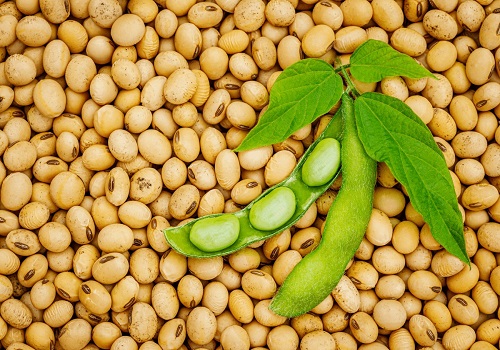Balanced Gains: How India’s Edible Oil Duty Revision Supports Refiners and Consumers Alike by CareEdge Ratings

Synopsis:
On May 30, 2025, the Government of India announced a reduction in the Basic Customs Duty (BCD) on key imported Crude Edible Oils (CEO) — namely Crude Palm Oil (CPO), Crude Soybean Oil, and Crude Sunflower Oil — lowering it from 20% to 10%. The policy adjustment, introduced to taper domestic edible oil prices and control food inflation, took effect from May 30, 2025. Notably, the BCD on Refined Edible Oils (RBD) remains at 32.5%, widening the differential between RBD and CPO to 19.25% and enhancing the competitive advantage for domestic refiners, ultimately aiding better price discovery for retail consumers.
Industry Overview:
India remains the world’s leading importer of edible oils, meeting approximately 55-60% of its domestic consumption through overseas purchases primarily from Indonesia and Malaysia. In Oil Year (OY) 2023–24, India’s edible oil imports totalled approximately 15.96 million tonnes (MT), with palm oil accounting for around 55% of the total, followed by soybean and sunflower oils. During the first seven months of OY 2024–25 (November 2024 to May 2025), edible oil imports stood at around 1.07?MT. According to Indian Vegetable Oil Producers’ Association (IVPA), import of refined palm oil surged from 0.458 MT during Q2FY25 (period between June-September 2024) to 0.824 MT (representing 30% of total palm oil imports) in the period October 2024 to February 2025 mainly due to duty hike on crude palm oil in September 2024.
Besides, refined palm oil costs and freight prices are approximately $45-50 per tonne lower than CPO, encouraging refined imports over CPO. Besides, this trend is exacerbated by the export policies of supplier countries, which generally impose higher export duties on CPO than refined palm oil. According to data from the Solvent Extractors' Association (SEA) of India, palm oil imports rose by 84% month-on- month in May 2025 to reach 0.59 MT — the highest monthly volume recorded since November 2024, as palm oil was trading at a discount as compared to soyabean oil and sunflower oil, which prompted refiners to boost purchases.
Impact on Industry:
Refining Sector Benefits: The increase in duty differential between crude and refined edible oils shall enhance competitiveness for domestic refiners. With BCD on CPO now reduced to 10% and refined oil duties unchanged at 32.5%, the effective duty differential between crude and refined oils has risen to 19.25% from 8.25%. Below is an illustration depicting the increased duty differential resulting from the reduction in BCD on Crude edible oils.
Exhibit 1: Illustration of key changes in the duty structure announced by the GoI

The revised duty structure is expected to benefit major players by encouraging refiners to favour crude imports over refined oils. This leads to improved capacity utilisation and enhanced refining margins through increased domestic processing.
Impact on Final Consumer:
Domestic retail edible oil prices, which saw firm trends during the first half of CY25 due to elevated global prices and currency depreciation, are expected to soften over the coming weeks as refiners pass on cost advantages resulting from the duty reduction. The Ministry of Consumer Affairs has also issued directives requiring edible oil companies to revise their Maximum Retail Prices (MRPs) downward and submit weekly updates on Price-toDistributor (PTD) rates.
With food inflation (CPI-based) easing to 2.8% in May 2025 (as per data from the Ministry of Statistics and Programme Implementation) and the Indian Meteorological Department forecasting a stronger-than-normal monsoon, these developments are anticipated to reinforce the downtrend in edible oil retail prices collectively. The chart below showcases the softening trend of crude palm oil prices after the reduction in BCD on CEO.
Exhibit 2: Crude Palm Oil Spot prices movement

CareEdge Ratings’ View
“The recent duty revision acts as a timely and prudent policy intervention aimed at moderating inflationary pressures while bolstering the competitiveness of domestic refiners. The increased duty differential is expected to enhance gross refining margins and boost capacity utilisation in the near term. Additionally, the reduced landed costs will likely result in a price correction over the near term, ultimately benefiting retail consumers,” said Rajan Sukhija, Associate Director, CareEdge Ratings.
Puneet Kansal, Director, CareEdge Ratings, opined, “This change in duty structure is designed to reduce domestic edible oil prices and curb food inflation, offering advantages to both refiners and consumers. However, the mediumterm consumer benefit will be contingent on global market conditions, currency fluctuations, and regulatory authorities' consistent enforcement of retail price adjustments. If global edible oil prices remain elevated, the benefit of lower duties may be passed on to consumers at a slower pace.”
“The move is a win-win for all in the domestic edible oil manufacturing value chain as it will not just strengthen the capacity utilisation of domestic refiners but also ensure a fair price to domestic oilseed farmers and a fair price to consumers. While consumers, farmers and processors may be the intended beneficiaries of the duty revision, given that there isn’t sufficient domestic output to support demand, the ultimate long-term benefit shall also depend on the duty structure of supplier countries,” said Priti Agarwal, Senior Director, CareEdge Ratings.
Above views are of the author and not of the website kindly read disclaimer






















